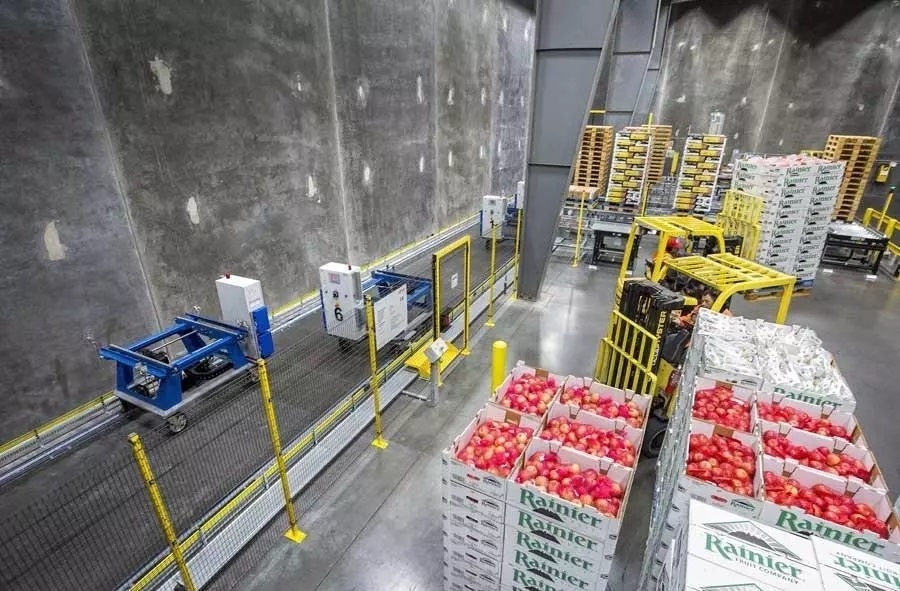More investment poured into cold storage facilities
While many industries are suffering during the COVID-19 pandemic, cold storage supply chains are heating up the logistics industry.
- RoK diplomat proposes increasing investment in Vietnam
- India-Vietnam seminar on promotion of trade and investment in pharmaceutical sector
- Finland provides US$100 mln for public sector investment in Vietnam

In a cold storage system, the standard temperature is always below 2 degrees Celsius. A standard cold storage is divided into four warehouse systems (from 1 to 4) that operate fully automatically, with 14 robots and forklift systems loading goods from the container into the warehouse and vice versa.
The increased imports of meat and seafood products during the epidemic as well as the need for cold storage to store vaccines are the driving force for the growth of the cold storage industry.
In Vietnam, large corporations have invested hundreds of billions of dong in large-scale cold storage systems. Vietnam Holding Limited - an investment fund managed by Dynam Capital, Ltd - spent VND139.8 billion to become the sole holder of convertible bonds issued recently by ABA Cooltrans, the provider of services and solutions in the field of cold storage supply chain, with 300 refrigerated trucks and more than 40,000 cold storages in Hanoi and Ho Chi Minh City.
In June 2020, THACO Group put into operation a fruit cold storage at Chu Lai port in the central province of Quang Nam, which covers 4,800 m2 and can contain up to 2,400 tons of goods.
Similarly, Hung Vuong Joint Stock Company (HVG) has just opened a VND1.3 trillion cold storage system at Tan Tao Industrial Park in Ho Chi Minh City, which has a total area of nearly 4 hectares and can store up to 60,000-70,000 tons of goods.
According to HVG, this is the largest cold storage in Vietnam and Southeast Asia, ranking second in the world in terms of design capacity (only after a cold storage system in Spain). This company plans to build another cold storage system at Hiep Phuoc port.
Sao Ta Company has contributed capital to establish the Khang An Food Joint Stock Company, which is licensed to build a 9,000-ton cold storage system in industrial zones in the southern province of Soc Trang.
Previously, Minh Phu Seafood cooperated with international shipping corporation Gemadept to establish Mekong Logistics alliance with the purpose of developing a cold supply chain with a capacity of 50,000 pallets.
In addition, a number of international financial funds have invested in this field, for example FinExpro's fund investing in cold storage projects in the Mekong Delta or the International Finance Corporation (IFC) approving a loan worth US$70 million in ITL Corp’s project to build a cold storage system in Ho Chi Minh City.
Over-demand for cold storage facilities
According to the Vietnam Association of Seafood Exporters and Producers (VASEP), the cold storage capacity in Vietnam has not yet kept up with the industry's demand.
Cold storage is not only a necessary condition for businesses to purchase all the shrimp and fish produced by farmers, but also a key link to help seafood processors create a large source of goods and meet export contracts when the market demand recovers.
However, investing in this industry is not easy. JLL Vietnam’s Trang Bui said that multimodal and cold chain logistics for heat-sensitive products such as food, cosmetics or vaccines will require logistics service providers to constantly innovate processes and technology so as not to miss the opportunity to benefit from these rapidly growing segments.
It is said that the biggest barrier to investing in cold storage in Vietnam is policy as there is no policy to encourage investment in this field.

